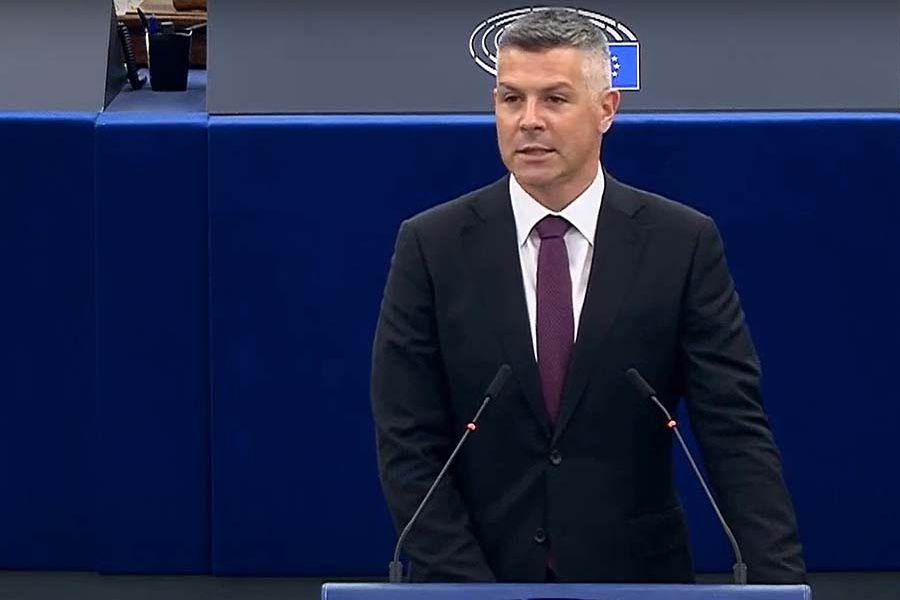Citizens in the streets of Serbia are rightfully demanding changes from the government and striving for normalization. It is now up to the political actors to meet these demands. That is precisely why Serbia needs fully functional, transparent, and democratic institutions, concludes our interviewee.

Citizens in the streets of Serbia are rightfully demanding changes from the government and striving for normalization. It is now up to the political actors to meet these demands. That is precisely why Serbia needs fully functional, transparent, and democratic institutions, concludes our interviewee.

The topic of potential early elections in Serbia has been a recurring question in discussions over the past few months, but as far as I know, no official decision has been made. Commenting on this topic at this moment would only fuel further speculation. What I would like to emphasize is the active role played by the European Parliament, in collaboration with Serbian political actors and relevant institutions, in improving electoral conditions during the previous phases of the inter-party dialogue.
This proactive engagement has led to certain improvements, the most significant being the return of greater pluralism in the Serbian Parliament after last years parliamentary elections, according to Matjaz Nemec, a Member of the European Parliament from the Group of the Progressive Alliance of Socialists and Democrats (S&D).
Nemec, who is also a member of the delegation to the EU-Serbia Stabilisation and Association Parliamentary Committee, acknowledges that "many challenges remain unresolved, especially when it comes to media freedom, which would create fair conditions for elections."
Regarding the current political situation in Serbia, including the decision of part of the opposition to block the National Assembly, Matjaz Nemec points out that in the past few days, we have witnessed a "significant increase in tensions between the ruling coalition and the parliamentary opposition, further heating up an already intense political climate."
"In such an already heated political climate, it is important that such escalations do not occur. Dissatisfaction must be approached constructively and resolved systematically. This is precisely why the European Parliament has become involved in the process of inter-party parliamentary dialogue - to improve the functioning of the Serbian Parliament. The European Parliament is firmly committed to this process, but significant changes can only result if all parties engage. I reiterate that the Assembly, as a directly elected institution, must be a place of dialogue and democracy," notes Matjaz Nemec.
Nemec highlights that "the absence of dialogue, the unwillingness to listen to opposing views, and the lack of transparency, which we are witnessing today, are counterproductive and pose a danger to stability."
"Citizens are in the streets of Serbia, rightfully demanding changes from the government and striving for normalization. It is now up to the political actors to meet these demands. That is precisely why Serbia needs fully functional, transparent, and democratic institutions," concludes Matjaz Nemec.
Published on September 8th, 2023
In all societies there are issues that are rather being skipped. Certain...
The neoliberal path, started in 2001, has led to especially bad results in Serbi...
For centuries, the region was subsumed within the Ottoman and Hungarian Empires,...
"Serbia has returned to the systemic and anti-systemic position of the political...
In reality, Serbia is closer than ever to NATO. In the course of the last five y...